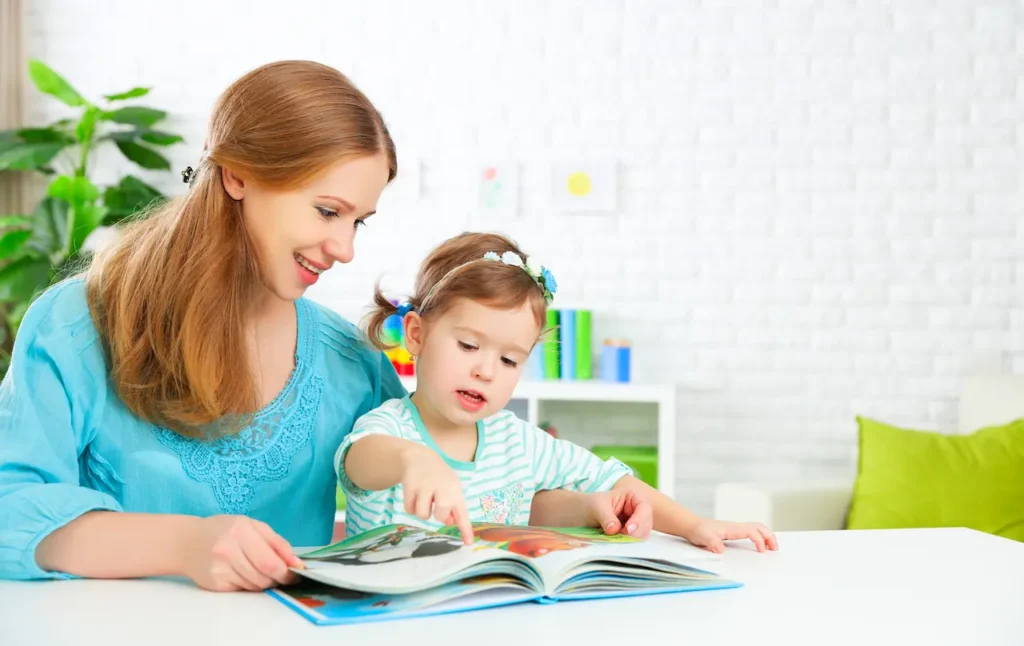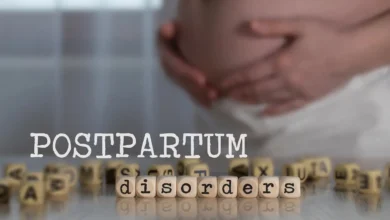The Conversation Starter
Recently, a provocative post on the popular parenting forum Mumsnet sparked a lively discussion among parents. A user posed the question, “Is having an only child selfish?” This inquiry prompted a flood of responses, reflecting a wide spectrum of opinions and emotions about family size.
Many parents quickly defended the choice to have one child, asserting that it is not inherently selfish. Commenters highlighted the insensitivity of the question itself, noting that many families don’t have the luxury of choice when it comes to the number of children they have. “What an ignorant view that would be. Many people, for many reasons, don’t get a choice,” one user remarked. This emphasizes a critical point: the decision to have one child can be a product of circumstance rather than a reflection of selfishness.

The Pressure to Conform
The original poster, a mother of one, expressed feeling immense pressure from society to expand her family. “We still constantly get comments about when we will give her a sibling,” she shared. This societal narrative often portrays only children as lacking something essential or destined to be lonely, perpetuating stereotypes that can leave parents feeling guilty or defensive about their choices.
Questions like “When are you having another?” may seem like innocent small talk, but they reveal underlying assumptions about family dynamics and the perceived importance of sibling relationships. Responses from other forum users showed a division of opinion. One parent pointed out, “It is possible to grow up happy and cared for as an only child (I was), just as it is possible to be an unhappy and neglected child of a larger family (my husband was).” This insight underscores the need for a more nuanced understanding of individual experiences and the myriad ways children can find happiness and fulfillment.
The Reality of Only Children
Many contributors to the discussion emphasized that every child is unique and that their experiences can differ greatly, regardless of whether they have siblings. Some individuals who grew up as only children shared that they sometimes wished for siblings, while others noted that this desire might stem from an idealized view of sibling relationships.
Moreover, a growing number of parents recognize the potential advantages of having fewer children. One contributor argued, “Every additional child we have—especially in wealthier, high-consuming countries—puts additional strain on our climate and natural resources. So I’d say that having fewer children is the unselfish option.” This perspective reframes the conversation, suggesting that choosing to have an only child can be an environmentally responsible decision, especially in light of global challenges such as climate change.
Personal Reflections on Being an Only Child
As someone who grew up as an only child, I have often experienced a mix of pride and apprehension about that identity. I was raised in central London, where I missed out on traditional childhood experiences—like learning to ride a bike, which I still can’t do at 34 years old. Yet, I have managed to sidestep the so-called “only child syndrome,” a term that suggests that children without siblings are more likely to be spoiled, narcissistic, or socially inept.
Now, as a mother to a one-year-old daughter, I find myself grappling with feelings of guilt and doubt regarding my decision not to have more children. I often wonder if I am denying her a vital experience, which is a difficult thought to navigate. The societal expectations that surround family size can make parents feel as though they are not doing enough, leading to a cycle of guilt and second-guessing.
The Challenges of Parenting
There are numerous reasons I identify with the “one and done” approach to parenting. First and foremost, raising a child is incredibly challenging. While people often say parenting is hard, the true weight of that responsibility is only fully understood when you are in the thick of it. As my mother described it during one particularly tough moment with a crying newborn, “It’s like a bomb has gone off in the middle of your life.”
From the rigors of childbirth to the ongoing challenges of breastfeeding, sleep deprivation, weaning, and tantrums, each stage of child development presents its own set of hurdles. The thought of navigating all these stages again feels daunting. The emotional and physical toll of parenting can be overwhelming, and the idea of going through labor and sleepless nights again seems almost insurmountable.
Then there are the logistical considerations. One child fits our lifestyle well. We manage to coexist in our small house in South East London, which has a garden the size of a postage stamp. We can still take family vacations and afford childcare without significant financial strain. Introducing more children into this mix would complicate everything, particularly since we lack nearby family support. My husband has a demanding job, and the bulk of childcare responsibilities often fall on me. The reality is that it would not make financial sense for me to continue working if we were to expand our family, and for my mental well-being, that’s a prospect I prefer to avoid.
The Fear of Isolation
As my friends calculate the ideal age gap for their second children, I often find myself questioning if my daughter will be harmed by not having a sibling. While I enjoyed a fulfilling childhood, I experienced moments where the label of “only child” made me feel different or isolated. I frequently wished for a companion to share experiences with, especially during moments of difficulty or loneliness.
Would my daughter experience similar stigmas? Would she be branded as socially awkward or overly spoiled? Would she miss out on learning valuable life skills that come from navigating sibling relationships? Am I being selfish by not providing her with a sibling to grow up with, someone to laugh and quarrel with? Or is it an act of self-care to recognize my limitations and make a decision that feels right for our family?
Changing Perspectives
Fortunately, societal attitudes toward family size are shifting. According to the Office for National Statistics, 40% of married couples had only one child in 2017, with projections suggesting this figure could rise to 50% by 2030. Recent studies have also challenged the notion of “only child syndrome,” showing that individuals without siblings are not inherently more selfish than those with them. This shift reflects a broader understanding that the quality of parenting and the environment in which a child grows is more important than the number of siblings they have.
Clinical psychologist Linda Blair, author of “Birth Order,” emphasizes the benefits of having an only child. “Only children are not badly adjusted; in fact, they often have significant advantages,” she explains. They receive their parents’ undivided attention and often excel academically due to strong linguistic input. Additionally, they tend to be organized and adept at managing their free time, skills that can serve them well in adulthood.
However, there are some downsides, such as missing out on what Blair calls “street smarts.” This form of learning typically occurs in the rough and tumble of sibling interactions. Yet, today’s only children usually come from families that have consciously chosen to have one child, leading to more opportunities for social interaction. Parents often actively seek out playdates and group activities to ensure their only child develops strong social skills.

A New Definition of Selflessness
When I question whether prioritizing my own needs is a selfish act, Blair disagrees. “More people are choosing to have only one child because they want their own lives,” she says. If children observe their parents living in exhaustion and sacrifice, it can set a challenging example for them. Instead, demonstrating that one can balance personal aspirations with parenting provides a more empowering role model. This perspective encourages children to understand that it’s possible to have fulfilling careers and family lives without sacrificing personal happiness.
My daughter’s health challenges have further shaped my perspective on expanding our family. At just three weeks old, she underwent emergency surgery for a rare digestive issue, leading to a three-month hospital stay. This experience was one of the most challenging periods of my life, and it illuminated the stakes involved in bringing a child into the world. The emotional toll and stress of navigating healthcare for a newborn were staggering, and it has certainly influenced my thoughts on whether to have additional children.
Today, my daughter is a thriving one-year-old, full of joy and laughter. If you met her, you would have no idea of the challenges she faced early on. She embodies the essence of being an “only child” in the best possible way, flourishing in an environment filled with love, support, and opportunities for growth.
The Social Stigma
Despite the shifting societal norms, a persistent stigma remains around being an only child. Comments from acquaintances often reflect outdated notions, suggesting that only children are spoiled or lack social skills. Such stereotypes can weigh heavily on parents of only children, who may feel defensive about their decisions.
Engaging with other parents and communities that embrace diverse family structures can provide invaluable support. Connecting with others who have made similar choices can help counteract feelings of isolation that sometimes accompany parenting an only child. These connections can also reassure parents that their decisions are valid and rooted in love.
The Advantages of an Only Child
While there are potential downsides to being an only child, many experts argue that there are also significant advantages. For one, only children often enjoy a stronger bond with their parents due to the undivided attention they receive. This close relationship can lead to better communication skills, emotional intelligence, and confidence.
Moreover, only children may excel in academic settings. They often have more resources, both in terms of time and finances, allocated to their education. With fewer siblings to compete for parental attention, they may also have more opportunities to engage in extracurricular activities, enriching their development.
Socially, many only children learn
to form friendships outside the family unit. With increased focus on playdates and group activities, they often develop strong social networks and adapt well to diverse social situations. These skills can help them navigate adulthood successfully, fostering both personal and professional relationships.
Encouraging Individuality and Personal Growth
Another advantage of having an only child is the potential for cultivating individuality. Parents can focus on nurturing their child’s unique interests and talents without the distraction of multiple siblings. This can lead to a sense of autonomy and independence that is beneficial throughout life.
Moreover, the parenting style can be tailored to fit the specific needs of the only child. Parents can invest time in developing critical thinking, problem-solving skills, and emotional resilience. This individualized approach can create a well-rounded, capable individual prepared to face the complexities of the world.
The Importance of Community
It’s crucial to remember that whether a family has one child, two, or more, the sense of community and support plays a vital role in a child’s development. Engaging with friends, extended family, and local groups can provide children with a network of social interactions that complement their home life. Activities such as sports teams, clubs, and community events can help foster friendships and ensure children learn to navigate relationships outside the family structure.
In recent years, there has been a growing movement to support diverse family structures, acknowledging that love and care are more important than the number of siblings. Many children thrive in environments where they are encouraged to explore, learn, and engage with others, showcasing that a single child can lead a fulfilling life without siblings.

Conclusion
So, is it wrong or selfish to have an only child? The overwhelming consensus, particularly from those who have grappled with this question, is no. Every family’s situation is unique, and the choice to have one child often arises from a variety of valid reasons—whether personal preferences, financial considerations, health issues, or lifestyle choices.
Ultimately, the focus should be on creating a nurturing, supportive environment for children, regardless of family size. What truly matters is the love, attention, and quality of relationships within the family. In a world that increasingly values individual choices and diverse family structures, embracing the idea of an only child can be seen as an act of self-awareness and responsibility. Every family should feel empowered to make the choices that are right for them, free from societal pressures and judgment. As we continue to challenge outdated beliefs about family dynamics, we pave the way for a more inclusive understanding of what it means to be a parent in today’s world.



